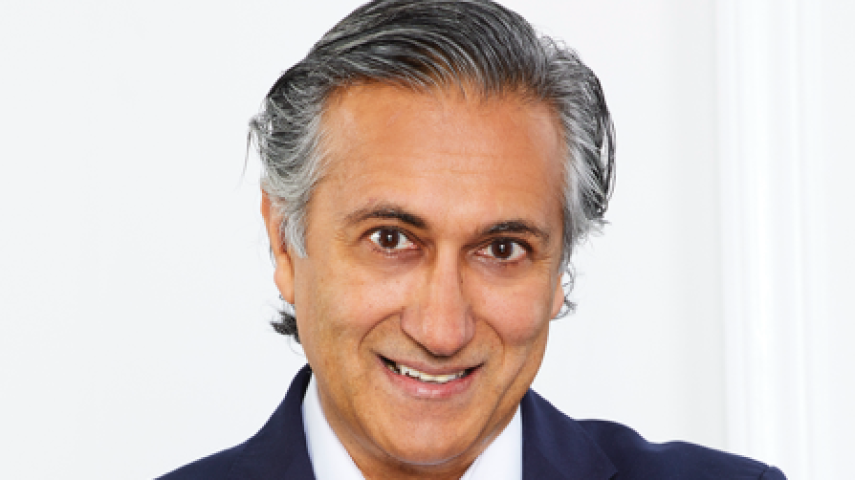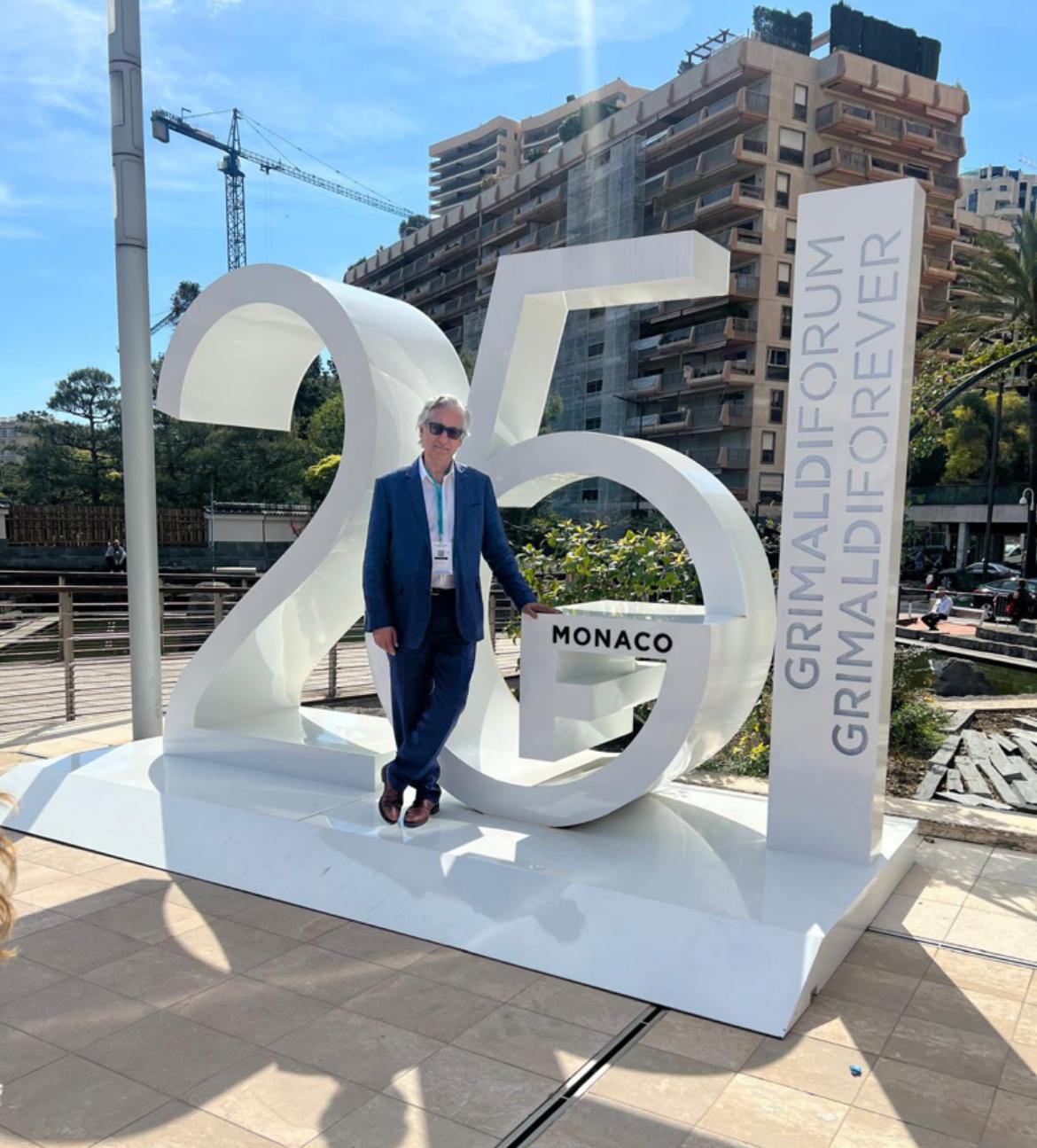
Dr Aamer Khan
A LEADER in regenerative medicine says rapid development in high precision skin treatments and aesthetics is paving the way to deeper well-being in our bodies and a slowing of the ageing process.
Dr Aamer Khan was speaking at the prestigious 23rd Aesthetic & Anti-Aging Medicine World Congress (AMWC), in the Grimaldi Forum, Monaco, introducing a range of groundbreaking treatments designed to rejuvenate skin at a cellular level.

Dr Aamer Khan
"Regenerative medicine is all about restoring tissues to their healthy state," explained Dr. Khan, co-founder of The Harley Street Skin Clinic, London. "When we're young, our cells regenerate efficiently, but this process slows down with age due to cellular damage, inflammation, and a decline in intracellular communication. This new treatment works by reactivating the body's natural ability to repair and regenerate."
The approach was developed by American dermatological scientist Dr. Elina Tester, who realised in the late 1990s that molecular biology could slow and even reverse the aging of human skin. Dr Khan said her latest development, for ABG Lab, is seen as a significant evolution in stem cell and regenerative science and is designed to enhance skin health and longevity.
As ABG Lab’s Ambassador, addressing the ABG Symposium at the AMWC Congress, Dr Khan explained how every cell of the human body communicates internally through proteins including cytokines and chemokines, which send chemical signals to instruct cells on various functions.
Over time, these signals become less effective, leading to cellular dysfunction and visible signs of aging. Dr. Tester’s treatments are designed to restore this communication, reducing inflammation and enabling skin cells to repair themselves more effectively.
"There are several hallmarks of aging," said Dr. Khan. "Damaged cells and cellular debris accumulate damage, DNA deteriorates, mitochondria function declines, and toxic waste builds up, leading to inflammation and immune system decline.
“Our skin, liver, and other organs become less efficient as a result, but these treatments help clear out damaged cells, stimulate fresh cell production, and improve overall cellular health and function.
“It specifically stimulates a biological process known as autophagy, in which the body removes damaged cells to make way for healthier ones. By encouraging this process, the treatment promotes a form of 'bio-cleansing’, reducing inflammation and enhancing the skin’s ability to regenerate and rejuvenate itself.”
He explained how the treatment used a unique blend of peptides to restore skin health, by stimulating the immune system to remove damaged cells and cellular debris, reduce inflammation and improve tissue function.
Stem cell-stimulating peptides then boost new skin cell production, increasing cellular volume and improving skin texture, while epigenetic peptides prolong the lifespan of new cells, boosting collagen production and reinforcing skin structure.
"This is not a superficial fix like Botox," Dr. Khan emphasised. "Botox relaxes muscles, but this treatment operates at a cellular level, actively reversing the ageing process rather than just masking it.
“Lots of other bio-regeneratable injectable are also being promoted but they use plant, fish and other animal material, and that’s like using a shotgun to deliver the regenerative cell information; some of the peptides might rejuvenate skin, but what are their other instructions doing? The nightmare scenario could be stimulation of unwanted or unhealthy cells or cellular function - there isn't any evidence of that now, but it’s a concern.
“We're using a sniper rifle in comparison. It’s precise and millions of people have been treated, with no problems whatsoever.”
Despite the cutting-edge science behind it, Dr. Khan insisted that the treatment remains affordable: "It's no more expensive than standard cosmetic treatments. A session costs 300-500 Euros, with three sessions typically needed to achieve optimal results. Maintenance treatments every three to six months ensure lasting benefits. It’s comparable in price to Botox but delivers much deeper and more lasting improvements."
In addition to injectables, there is also a skincare line for ongoing maintenance.
The treatment is currently available in the US and several European countries but awaiting UK approval. "We expect certification from the MHRA (Medicines and Healthcare products Regulatory Agency) by late 2025/early 2026," said Dr. Khan.
Looking ahead, he believes this science will extend far beyond skincare: "The most exciting thing is similar developments in intravenous treatments that could reduce systemic inflammation and even prevent disease.
“It underlines how regenerative medicine is the future of healthcare, not just aesthetics. The next step will be using these techniques to treat medical conditions and improve overall wellness."
One particularly exciting development involves fat metabolism. "One of the peptides being developed influences how the body stores and burns fat," Dr. Khan revealed.
"It helps convert white fat into healthier, thermogenic brown fat, promoting weight loss and reducing harmful visceral fat. This could be a game-changer for weight management and overall health."
Dr. Khan emphasised that the real goal is to integrate regenerative medicine with a holistic approach to health: "How you look on the outside is a reflection of your inner health. So, this treatment isn't just about aesthetics—it’s about overall well-being. When combined with good nutrition, exercise, and lifestyle choices, it has the potential to transform not just our skin but general health and longevity.
“It’s a window to a future where beauty and health go hand in hand, and aging is no longer an inevitable decline, but a process that can be actively managed and reversed.”

